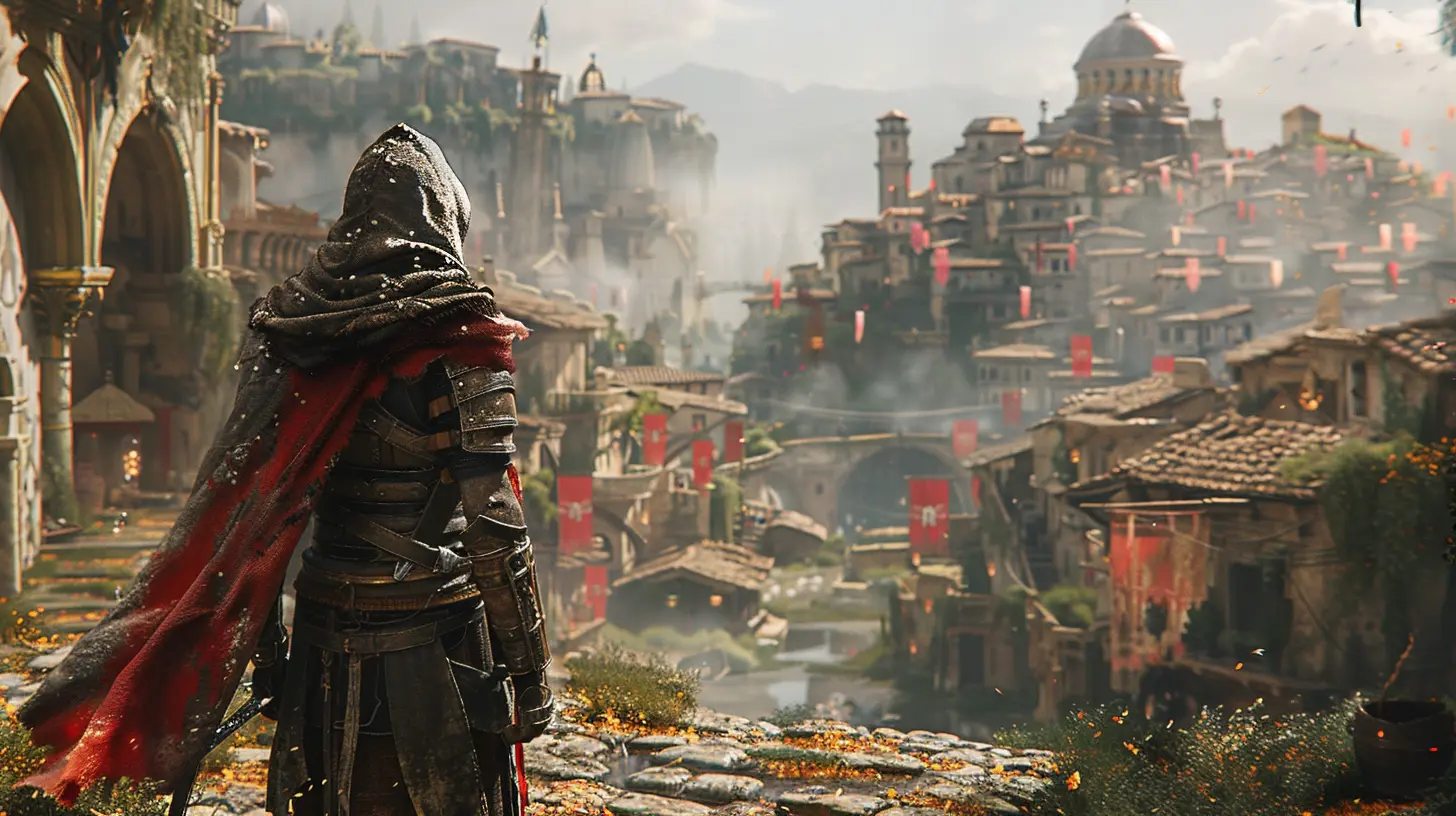The Importance of Performance and Voice Acting in Game Award Categories
4 May 2025
In the video game industry, where technology pushes boundaries and players demand immersive experiences, one thing often stands out: how human performance breathes life into virtual characters. Performance and voice acting have evolved into a cornerstone of storytelling within video games, enhancing emotional connections and narrative depth. But here's the kicker — their importance goes beyond just storytelling. These elements are now celebrated through prestigious awards, legitimizing them as art forms in their own right. Let’s peel back the layers and understand why performance and voice acting deserve the spotlight in game award categories.
Why Performance Matters in Video Games
Imagine you’re playing your favorite game, and an emotional cutscene unfolds. The protagonist is dealing with heartache, a critical loss, or triumph. What makes that moment hit home? It’s not just the script or the visuals; it’s the sheer power of the performance. Motion capture, body language, facial expressions, and voice delivery bring a character to life in ways no other medium can match.Performance transforms polygons into people. Think about Arthur Morgan from Red Dead Redemption 2 or Joel and Ellie from The Last of Us. Their stories stick with us because we felt their pain, their joy, and their struggles. Does that happen by accident? Absolutely not. It’s meticulous work by actors who literally step into these characters’ shoes.
Voice Acting: The Unsung Hero of Gaming
Voice acting might not seem like a big deal at first glance, but hear me out — it’s everything. Imagine playing Mass Effect or Skyrim, and all the characters sound robotic or flat. Would you still be invested in the story? Probably not. Voice acting provides the emotional weight behind every line of dialogue, turning a scripted interaction into something believable and impactful.Here’s an example that blew players away: Roger Clark’s Arthur Morgan. The vocal nuances — his rasping tone, his heavy breaths as he succumbed to tuberculosis — weren’t just performances; they were visceral experiences. Players didn't just hear Arthur; they felt him. That’s the power of a well-done voice performance, and honestly, the industry would feel hollow without it.
The Evolution of Voice Acting in Games
Gone are the days when voices in games felt like afterthoughts. Remember the cheesy one-liners from early ’90s games? Yeah, we've come a long way. With games evolving into storytelling masterpieces, the bar for voice acting has skyrocketed. Studios now hire seasoned actors, use advanced voice recording techniques, and invest heavily in getting characters just right.A great example of this evolution is Troy Baker, who pretty much redefined voice acting in games through roles like Joel in The Last of Us or Booker DeWitt in Bioshock Infinite. His ability to channel raw emotion set new standards that other actors now aspire to meet.
Performance and Voice Acting: A Match Made in Heaven
Want to know what’s even better? When voice acting and physical performance blend seamlessly. Motion capture technology has become a game-changer, allowing actors to embody their characters physically and vocally. Think of it like baking a cake — the motion capture is the base layer, while the voice work is the icing that makes it irresistible.Take the Uncharted series as an example. The camaraderie between Nathan Drake (played by Nolan North) and the supporting characters feels organic because it’s rooted in real-life performances. This synergy between physical acting and vocal delivery is what sets great games apart, making them unforgettable.
Recognizing Greatness: Performance in Game Award Categories
Here’s the thing: performance and voice acting aren't just "nice to have" anymore. They're pivotal. That’s why they deserve separate recognition in game awards. With categories like "Best Performance" now becoming a staple at events like The Game Awards, the industry is finally acknowledging the hard work actors put in.And let’s be real — these awards do more than just stroke egos. They shape how we, as a gaming community, perceive storytelling in games. They remind us that behind every hero, villain, or quirky sidekick is an actor who poured their heart into creating that role.
The Impact on Players: Why We Care So Much
If you’ve ever cried during a video game (The Last of Us, anyone?), you already get why performance and voice acting matter. It’s not just about cool graphics or epic gameplay; it’s about connection. These actors make us care deeply about fictional worlds and pixels on a screen. They make us believe, even if it’s just for a few hours, that these characters are real.Think about it: what’s the point of a beautifully crafted game if the characters feel as flat as cardboard? Performance elevates the entire experience. It keeps us invested, engaged, and, most importantly, emotionally involved.
Breaking Down Barriers Between Gaming and Cinema
Performance and voice acting have also been instrumental in legitimizing video games as a medium of art. Ever noticed how games like God of War and The Witcher 3 often get compared to movies and TV shows? That’s because the performances in these games rival — and sometimes even surpass — what we see on the big screen.Let’s not forget that many big-name actors are now getting involved in gaming. From Norman Reedus in Death Stranding to Keanu Reeves in Cyberpunk 2077, the line between Hollywood and gaming is blurring. This crossover has raised the stakes for game awards to properly honor performance as a central pillar of game design.
Challenges in Evaluating Performances
Now, let’s address the elephant in the room: how do you judge performance in games? Unlike movies, where actors are physically present on-screen, gaming performances involve layers of technology — animation, rendering, editing — that can amplify or hinder an actor’s work.Here’s where awards play a crucial role. They encourage developers to prioritize authenticity and ensure the actors’ performances are not drowned out by the tech. Awards set the standard, pushing the industry forward and rewarding those who truly excel.
A Call for More Recognition
Despite the strides made, there’s still room for improvement. How often do we hear gamers talking about graphics, gameplay mechanics, or multiplayer features, but overlooking the performances? It’s like praising the frosting on a cake but ignoring the sponge. It’s time we, as players, demand more recognition for the craft that goes into bringing characters to life.Wrapping It All Up: Why This Matters
At the heart of it, performance and voice acting are about storytelling. They’re the bridge between the virtual and the real, the thing that makes us laugh, cry, and scream at our consoles. As the gaming industry continues to evolve, these elements will only grow in importance. So the next time you’re playing a game and get chills during a key scene, take a moment to appreciate the work that went into making that moment unforgettable.Game awards aren’t just about shiny trophies; they’re about honoring an art form that’s still finding its rightful place in the world. Performance and voice acting deserve to be celebrated, and luckily, more and more award shows are stepping up to the plate.
all images in this post were generated using AI tools
Category:
Game AwardsAuthor:

Leif Coleman
Discussion
rate this article
4 comments
Julia Alvarez
Great article! 🎮 Performance and voice acting truly elevate the gaming experience. It's amazing how talented actors bring characters to life, making us feel more immersed in the story. Well said!
May 18, 2025 at 4:18 AM

Leif Coleman
Thank you! I'm glad you enjoyed the article. Performance and voice acting really do transform the gaming experience! 🎮
Vaughn Rios
Great read! Voice acting and performance truly elevate gaming experiences. It’s amazing how these elements can transform characters and storytelling. Looking forward to more discussions on this!
May 16, 2025 at 4:08 PM

Leif Coleman
Thank you! I completely agree—voice acting and performance are crucial in enriching storytelling and character depth in games. Excited for more discussions too!
Zanthe Lambert
Performance and voice acting are the heartbeat of gaming. They elevate storytelling, immerse players, and breathe life into characters. Recognizing these talents in awards inspires a new era of unforgettable gaming experiences!
May 8, 2025 at 4:55 PM

Leif Coleman
Absolutely! Performance and voice acting are essential in gaming, enriching narratives and deepening player engagement. Celebrating these talents in awards truly enhances the industry's artistic recognition.
Annabelle Rios
What an intriguing perspective! I’m curious about how performance and voice acting influence player immersion. Do you think they should be weighed equally with gameplay mechanics in award considerations?
May 5, 2025 at 3:19 PM

Leif Coleman
Thank you for your insight! I believe performance and voice acting are crucial for immersion and should be weighed equally with gameplay mechanics in award considerations, as they significantly enhance the overall player experience.



